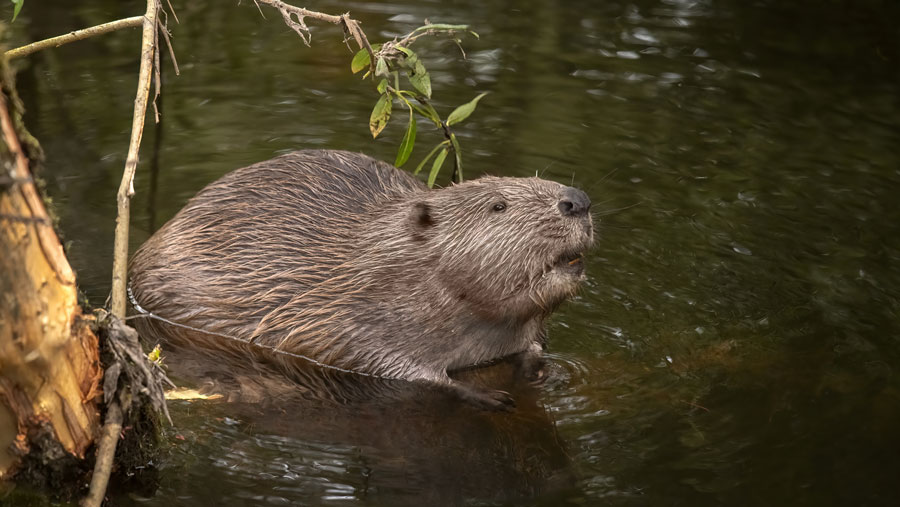Farmers applaud controlled management of beavers in Scotland
 © Adobe Stock
© Adobe Stock A managed approach to reintroducing beavers in Scotland has led to a doubling of numbers in just three years, an outcome described as a “conservation and reintroduction success story’’ by NFU Scotland (NFUS).
Beavers were reintroduced to Scotland in 2009 and, according to figures published on Tuesday (10 August) by NatureScot, there are now around 1,000.
See also: Can beavers and farms work together on flood control?
The number of beaver territories has also more than doubled, to 251, covering an area from Glen Isla to Dundee and Stirling, Forfar to Crianlarich.
In 2019, it became illegal to kill or disturb beavers, but those which destroy farmland by burrowing or dam building can be removed under licence.
NFUS president Martin Kennedy said the NatureScot survey data vindicated what he described as a ‘’considered approach’’ to beaver management.
Mr Kennedy believed that a management framework that worked in the interests of beavers and wider biodiversity, while limiting the damage to agricultural land, had been successfully developed.
Mitigation
The management project includes measures to mitigate against damage to farmland, such as tree protection and the installation of flow devices in beaver dams.
NatureScot staff, aided by a specialist advisor, have given advice, support and on-the-ground assistance to land managers to install these mitigations where beavers have created conflict with land management.
The initiative has also allowed the population to be controlled to prevent serious damage to agriculture.
In 2020, under species control licences, 31 beavers were trapped and moved to licensed, enclosed reintroduction projects in England, 56 beaver dams were removed, and 115 were lethally controlled.
Mr Kennedy said it was “vitally important” that the option of licenced lethal control continued to be permitted when mitigation measures were not working and significant agricultural damage occurred.
Scotland’s foremost beaver specialist, Dr Roisin Campbell-Palmer, the lead author of the survey report, said beavers were recognised as ecosystem engineers with important biodiversity benefits, but that some of their impacts could be “challenging” alongside certain land-use practices.
